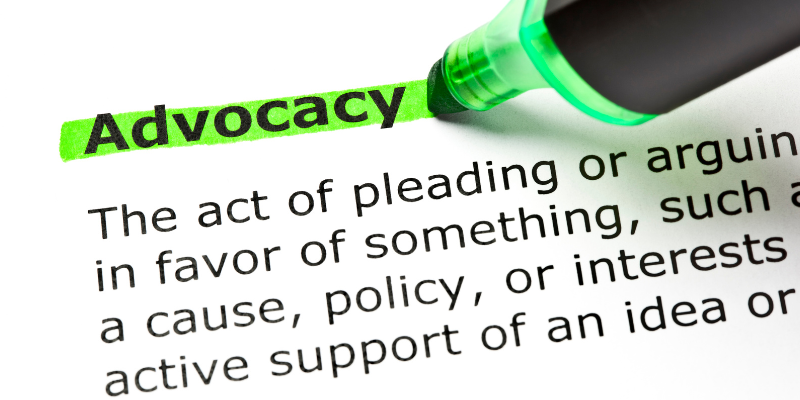In the intricate dance between legislation, regulation, and industry evolution, cleaning and restoration associations emerge as powerful advocates for the sector. Their role in influencing policies, shaping regulations, and representing the interests of industry professionals is crucial for fostering a conducive environment for growth.
This blog post delves into the realm of advocacy and industry influence, exploring how associations navigate the legislative landscape and contribute to the shaping of policies that define the cleaning and restoration sector.
I. Advocacy at the Legislative Level
Cleaning and restoration associations actively engage in advocacy efforts at the legislative level, aiming to influence the development and modification of laws that impact the industry. This involvement is multifaceted, encompassing issues related to safety standards, environmental regulations, licensing requirements, and more.
1.1. Safety Standards and Compliance
Associations play a pivotal role in advocating for robust safety standards within the cleaning and restoration industry. By actively participating in discussions with lawmakers and regulatory bodies, associations contribute to the development of standards that prioritize the well-being of professionals, clients, and the broader community. These efforts ensure that the industry operates in a manner that upholds the highest safety standards.
1.2. Environmental Regulations
In an era where environmental sustainability is a global priority, cleaning and restoration associations advocate for regulations that promote eco-friendly practices. By influencing legislation related to waste disposal, chemical usage, and sustainable technologies, associations contribute to the industry’s commitment to environmental responsibility. This advocacy not only aligns with broader societal goals but also positions the industry as a responsible steward of the environment.
1.3. Licensing and Certification
Associations often advocate for standardized licensing and certification requirements to enhance the professionalism of the industry. By working closely with regulatory bodies, associations help establish criteria that ensure individuals and businesses meet specific qualifications, thereby elevating the overall quality of services provided. This advocacy fosters a sense of trust among consumers and contributes to the industry’s credibility.
II. Shaping Industry Policies
The impact of cleaning and restoration associations extends beyond individual advocacy efforts; these organizations actively contribute to the development of industry policies that guide best practices, ethical conduct, and the overall trajectory of the sector.
2.1. Code of Ethics and Best Practices
Associations often establish and promote a code of ethics and best practices within the industry. These guidelines serve as a compass for professionals, outlining principles that prioritize integrity, transparency, and customer satisfaction. By actively promoting and enforcing these standards, associations shape the industry’s reputation and foster a culture of excellence.
2.2. Training and Education Policies
Education and training are cornerstones of the cleaning and restoration sector, and associations influence the development of policies related to professional development. By working with educational institutions, industry stakeholders, and regulatory bodies, associations help shape policies that ensure training programs align with industry needs, fostering a skilled workforce capable of meeting evolving challenges.
2.3. Research and Development Initiatives
Associations often spearhead research and development initiatives to drive innovation within the industry. By advocating for policies that support research collaborations and technological advancements, associations contribute to the sector’s ability to embrace new technologies, improve methodologies, and stay at the forefront of industry trends.
2.4. Collaborative Industry Standards
Associations play a central role in the development and promotion of industry standards. By collaborating with stakeholders, including businesses, government agencies, and experts, associations contribute to the creation of standards that guide practices, ensure consistency, and facilitate the delivery of high-quality services. These standards become a benchmark for excellence within the cleaning and restoration sector.
III. The Impact of Associations on Industry Policies
The impact of cleaning and restoration associations on industry policies is profound, influencing the trajectory of the sector and setting the stage for sustainable growth and development.
3.1. Credibility and Trust
Associations lend credibility to the industry by advocating for and upholding high standards. As policies shaped by these organizations emphasize professionalism, safety, and ethical conduct, consumers and stakeholders place greater trust in the services provided by industry professionals. This trust becomes a foundation for long-term success and positive industry perceptions.
3.2. Adaptation to Change
The cleaning and restoration sector is dynamic, with advancements in technology, changes in consumer expectations, and evolving environmental considerations. Associations, by actively shaping policies that encourage adaptability and innovation, position the industry to navigate these changes effectively. This adaptability ensures that industry professionals remain competitive and resilient in the face of evolving challenges.
3.3. Advocacy for Small Businesses
Associations often advocate for policies that support the interests of small businesses within the cleaning and restoration sector. By addressing regulatory burdens, facilitating access to resources, and promoting fair competition, associations contribute to the sustainability and growth of small businesses, ensuring a diverse and vibrant industry landscape.
3.4. Representation of Diverse Interests
Cleaning and restoration associations serve as a unifying force, representing the diverse interests of professionals, businesses, and stakeholders within the industry. Through collaborative efforts and ongoing advocacy, associations ensure that policies reflect the needs and perspectives of the entire sector, contributing to an inclusive and well-balanced regulatory framework.
In the ever-evolving landscape of the cleaning and restoration sector, associations stand as beacons of advocacy, shaping policies that define the industry’s standards and practices.
Their influence extends beyond legislative discussions, actively contributing to the development of ethical guidelines, professional standards, and innovative approaches to industry challenges.
As the custodians of the sector’s integrity and professionalism, cleaning and restoration associations play a pivotal role in steering the industry toward a future marked by sustainability, adaptability, and continued success.
Thanks for Reading!


